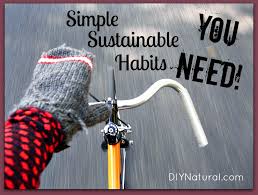The Importance of Creating Positive Habits by Manveer Singh
The Importance of Creating Positive Habits by Manveer Singh
What are habits?Habits are a consistent routine of behaviour that we are conditioned to live by. Some of these routine behaviours can have a positive or a negative effect on us which usually depends on a number of factors such as the environment, our belief systems and also influences our overall well-being.
Having sustainable habits are very crucial to ensure that we can be as productive as possible, however they can be very difficult to sustain. Throughout this blog I will be mentioning some of the ways to not just create positive habits, but how to create sustainable and long-lasting ones.
1- The Intention
Before performing or deciding that you want to perform a specific habit that you have chosen yourself, you must ask yourself, what is your intention behind doing it? The intention behind the habit is very important to consider as it can either motivate you further to perform a habit or you may not be able to sustain the habit for a longer period.
By having an intention or a why towards your habit, every task that is required for the habit to perform can feel less unbearable. This is because the intention sets the reasons and rationale by why you take the action, this makes it programmable towards your mind by setting your intentions. Could this be that you want to learn new things, become more physically strong, speak to different people or pursue a profession?
This is up to you and it’s also to be imaginative and creative, but as long as your why is stronger than your how, you have a strong foundation in creating a sustainable habit.
2- Understand your Current Habits
Our current habits can often be the barriers to the habits that we want to create. This is because we have felt adapted to performing the habit that it feels very comfortable to perform. And to change that routine of behaviour to a completely new and different one can be hard to sustain in the long term. Often the case is that you have a good streak in avoiding a negative habit by performing a positive habit.
However, by just solely replacing a habit with a new one is not the most sustainable option especially if the habit you are trying to avoid has become second nature towards you. The best way to replace your habits or try and avoid doing them is by understanding why you commit the habit in the first place and what enforces your mind to perform the activity in the first place. This may be through the emotional reward the activity brings, the comfortability in performing it, and how it has impacted your behaviour in the past. It’s the key to understanding how to create new ones because by understanding how you have formed your habits you begin to create a way to make new ones.
This allows you to create a foundation for how you can create sustainable habits as you understand yourself on a much deeper level, and by slowly pushing from your old ways you can open new doors to new habits.
3- Make the habit easier to do
If the habit feels difficult to do, it is much better to make the habit easier to perform. For example if you’re unable to do 10 push ups in a row start off by doing only 1, if you’re unable to do 3 hours of work try by doing 30 minutes instead and taking 5 minute breaks which is known as the Pomodoro Technique.
Its is important to start off small, because trying to accomplish a huge habit as a part of your routine can feel very burdening. But it’s not important about the quantity of the habit you perform, it’s about remaining consistent, no matter how small the progress is. If it is made regularly you’re able to slowly incorporate the habit into your lifestyle.
The small progress makes a more swifter foundation and allows you to grow and take on more work throughout the weeks or months it takes for you to be able to find comforting and more easier to do. Which will ultimately make a habit less burdening and more sustainable to do.
4- Set the environment
The environment in which you perform your habit is very crucial. The environment that you are surrounded by could mean the people you are surrounded by, the aspirations and the ideas you follow and could also mean the physical environment such as your home or the place you work or study at. Your environment around you always plays a part in what you want to do. And it is important to organise your environment in such a way that every habit that you perform can be performed to its maximum potential.
For example, you will not be able to learn Spanish in the UK with enough fluency even if you tried learning from books and lessons, however if you go to a Spanish speaking country you are able to speak the language better as you are placed in an environment full of Spanish speakers. This environment will put more pressure on you to speak the language which will improve your ability to speak Spanish. I am using this as an example as it clearly shows how the environment you are modeled to work under either inspires you as you are automatically encouraged to perform the habit or it dissuades because the environment you surround yourself with does not give the habit you want to do as much importance.
If you believe that the environment you surround yourself with feels negative towards the habit you want to create, it is important to understand how it affects you and your ability to perform the habit. Or it could mean that you may have to create a new and different environment. Ultimately it iis important to understand how your environment maximises your ability to perform and sustain habits
I hope these tips have helped you gain an insight on habit making, whether this is for your work, school or just trying to just be a better and more productive version of yourself, it is always important that we make a step to make a more positive step towards creating better and more sustainable habits.

